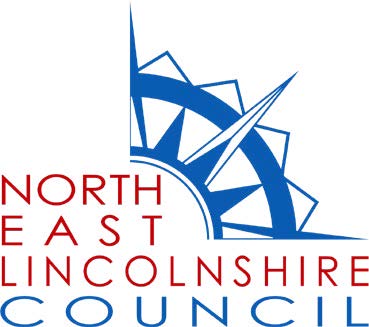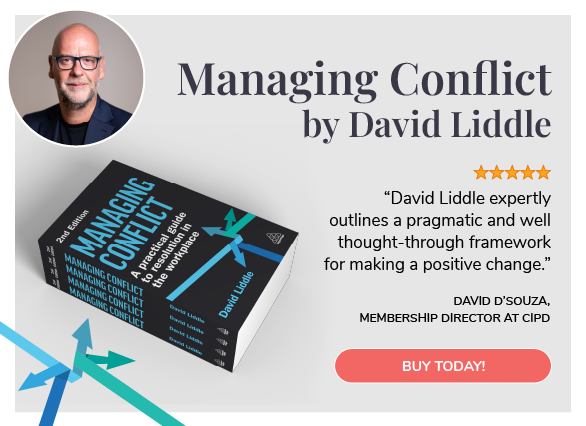

Download this case study


Read more case studies:
From Policy to People
Introduction
A People Partner and Policy Officer in a local Council had a dream of doing things differently. Tired of the antiquated, self-serving policies that governed their workplace; restrained by stakeholders resistant to change. They couldn’t go to senior management and tell them they had an idea – they needed something credible, tangible, that was proven to work. Quietly following TCM’s journey and the emergence of the Resolution Framework™ since 2016, Jonathon Sturgeon and Sophie Tillison decided it was time to disrupt the status quo of local government in 2021.
North East Lincolnshire Council (NELC) is a local authority with the powers of a non-metropolitan county and district council combined. As a Council, they provide government services including Council Tax billing, social services, planning applications, and local education authority. As a body under the jurisdiction of the government, NELC is subject to rigid rules and regulations that have been in place for decades. This traditional suite of policies often mismatched the modern and evolving values that the council was trying to achieve.
Targetting Issues
The issue for NELC was a thread of misalignment that had been unravelling for years. The People and Culture team is governed by a set of principles named the EACH model: Employees as Adults, Consumers and Human Beings. Existing HR policies around absence, grievance, and employee wellbeing failed to reflect these guiding ideals, causing a structural disconnect. For Jonathon, the key missing component was the human element – employees were seen as statistical data, with issues and concerns treated without compassion and communication by unskilled leaders.
The HR team transitioned to a People and Culture function; an initiative led by Victoria Leach as Head of the department. A first step towards a people-centred shift was to transform absence procedures. Formal triggers to adopt when an employee made an absence at various stages were replaced with a manager-focused, interpretative, and flexible approach. It was up to leaders to define the route for each absence as a unique case, consequently requiring close engagement and dialogue with the employee in question. Initially, this was met with frustration by senior authority. With a lack of formal direction, traditional mindsets that had become ingrained from decades of stagnant regulations were left to rely on thought and emotions for guidance – an alien option to most.
Over the past few years, the team continued to transition to more principle-based policies, focusing on values and people, but recognised there was still a long way to go. They knew the traditional grievance procedure was failing to create positive outcomes, often working against their own policy. It came to a head in 2018. An employee had been suspended for eight weeks – the employee never really understood the allegations they faced, and they were never resolved, with relationships being damaged beyond repair. The coincidental culmination of events sparked up a conversation that would act as a catalyst for real, paced, transformative change.
The team began discussing their grievance procedure and their individual encounters with it, reaching engagement with the entire workforce – not a single person had had a positive experience. Something needed to change.The transition was going to be gradual, but staff were ready and the message was finally clear: it was time for transformation. Culture mattered, written as a model in faded company policy, but it was time for culture to happen. As a Council gripped by firm authority, with full-time convenance from trade unions, Jonathon realised that stakeholder engagement and buy-in from the outset was integral for optimum success.
Making Resolutions
“TCM was a good starting point as we needed something with credibility for the transformation to stick. Their work with resolution had been tested at tribunal level and implemented at Newham Council successfully. To have a concrete plan, built and designed by a trusted source like TCM, enabled buy-in from leadership and authorities which was key to full implementation.”
TCM’s Routes to Resolution™ framework mirrored the journey that Jonathon and his team urged the Council to take. Designed to support the Resolution Framework™, it provides organisations with flexible options for dealing with conflicts in line with the underlying psychological, procedural and substantive needs of parties involved. Resolution Consultant Harriette Wolff delivered this training, equipping 14 delegates with skills to build rapport, trust and active listening.
The two-day course focused on implementing the new policy around informal resolution, placing informal stages such as early resolution meetings, facilitated conversations, and mediation as first steps before submitting a formal request for resolution. The Resolution Policy was officially launched on 1st April 2021, after pandemic pushback. The HR department had evolved to become People and Culture, acting with empathy, impartiality and neutrality with a commitment to conscious communication. Now, their policies are starting to embody this.
In addition to this, a Core Investigation Skills course was delivered to enable senior figures to effectively question, interview and challenge any arising conflict. Training ensured that all investigations would be streamlined and conducted to the same standards across the Council, echoing the same ‘psychologically safe’ principles that their Resolution Policy looked to adopt.
The key learning for NELC was to secure stakeholder engagement from design through to implementation. Banishing archaic policy and building trust in new innovative processes is fostered by continual and deliberate positive interactions between senior leadership, unions, and employees.
Impacting Culture
“This time around, there’s been a lot less resistance. Barriers between hierarchy have been broken down and trust is being built with each case that we successfully resolve. Someone recently had a disagreement with a manager – providing a safe and facilitated environment allowed both parties to speak, without escalating into a formal grievance. A conflict that would usually last weeks under formal litigation has evolved into an effective 45-minute conversation.”
Since transforming their conflict resolution approach and implementing their Resolution Policy, Jonathon has dedicated himself to the cause. For the past four months since launch, weekly workshops discussing soft skills for conflict management and resolution have secured ongoing commitment from leadership. Leading the way for restorative resolution, Jonathon has reached over 100 managers so far on his mission to transform the entire Council.
Looking Forward
The People and Culture team are now developing a training package that will form part of a formal induction to all new employees and is to be completed by existing staff members. Workshops will extend from centring around managers, to a clear and defined culture for all to assign to. As such, the whole network of policies will be streamlined with a forward-facing, people-centred culture: performance management will be next in line.
The workforce will continue to be engaged as each policy is overturned and refreshed. The People and Culture team as the sole Resolution Hub will be expanded, with trained in-house mediators to avoid external sourcing. Keeping a tightknit community with continual dialogue will ensure maximum understanding between employees and the integration of a compassionate culture.





